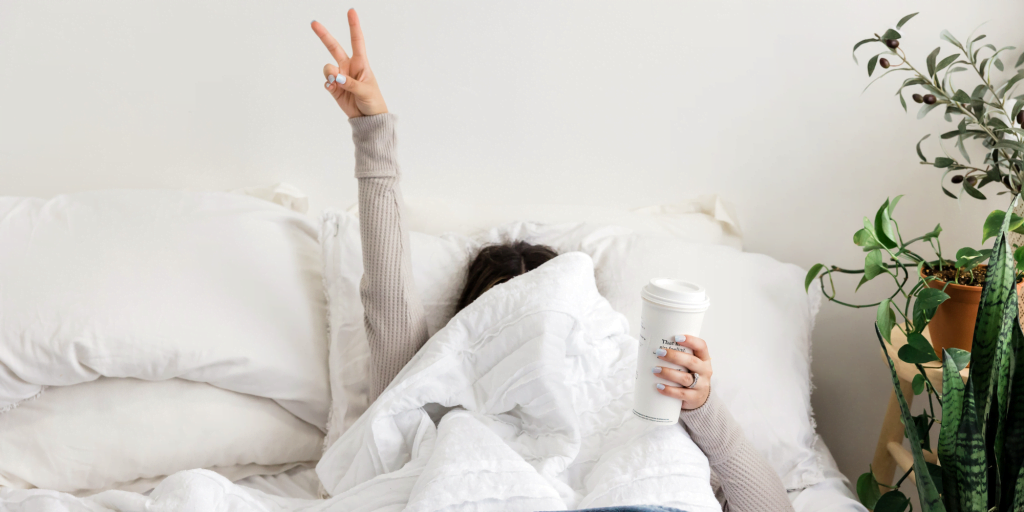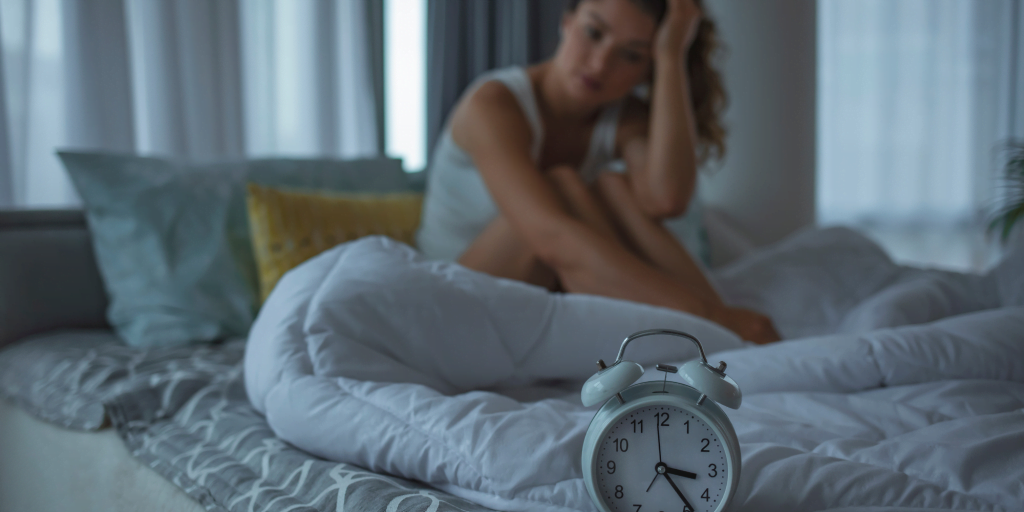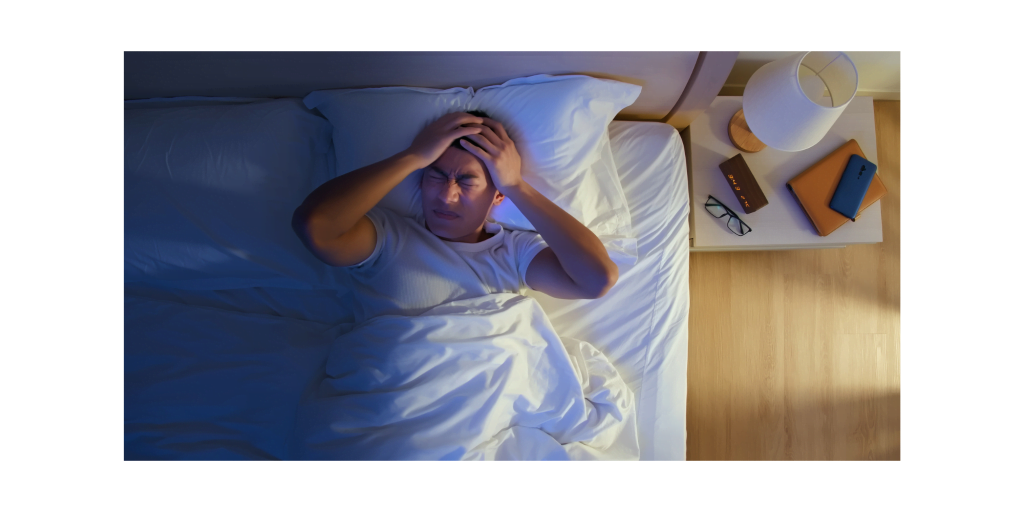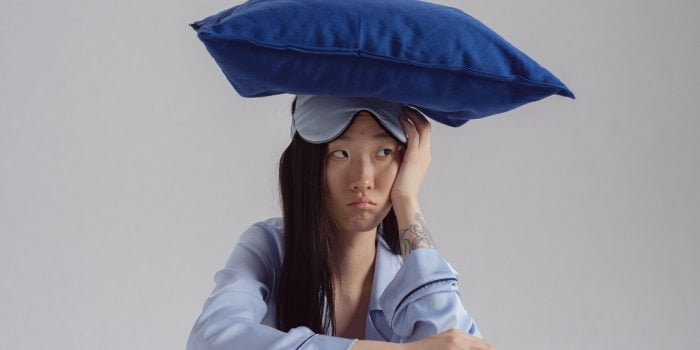Introduction
The intricate connection between sleep and mental health is illuminated through the field of Chronopsychology (CHP). CHP delves into various aspects of sleep patterns and their impact on mental well-being, providing valuable insights into the underlying mechanisms.

One crucial aspect is sleep duration, as both insufficient sleep and excessive sleep have been linked to negative effects on mental health. Inadequate sleep duration increases the risk of developing mental health disorders such as depression, anxiety, and bipolar disorder. On the other hand, excessive sleep can also contribute to mood disturbances and cognitive impairments.
Furthermore, CHP focuses on the role of circadian rhythms in mental health. Circadian rhythms are the internal biological processes that regulate our sleep-wake cycles and other physiological functions. Disruptions in circadian rhythms can have significant implications for mental well-being. Research within the framework of CHP has revealed that individuals with disrupted circadian rhythms, such as those with delayed sleep phase syndrome, are more susceptible to mood disorders. Additionally, circadian rhythm disturbances have been associated with insomnia, seasonal affective disorder (SAD), and certain forms of depression. It is a bidirectional relationship, as addressing circadian rhythm disruptions can lead to improvements in mental health outcomes.
Sleep disorders, another area explored by CHP, intersect with mental health conditions. Conditions like insomnia, sleep apnea, and restless legs syndrome can significantly impact mental well-being. Insomnia, characterized by difficulty falling or staying asleep, is closely linked to psychiatric disorders, particularly depression and anxiety. Sleep apnea, a disorder involving disrupted breathing during sleep, has also been associated with mood disorders, impaired cognitive function, and an increased risk of developing depression. By understanding the complex interactions between sleep disorders and mental health, CHP provides insights into developing effective treatment approaches that target both domains simultaneously.

The implications of understanding the connection between sleep and mental health are far-reaching. CHP research informs the development of integrated interventions that address both sleep disturbances and mental health disorders. By incorporating sleep hygiene practices, such as maintaining a consistent sleep schedule and creating a sleep-friendly environment, clinicians can improve sleep quality and regulate circadian rhythms, ultimately enhancing mental health outcomes. Light therapy and chronotherapy, which involve exposure to specific light wavelengths and timed administration of medication, respectively, are additional approaches informed by CHP that can be utilized to optimize sleep and mental well-being. Pharmacological interventions that target sleep disturbances also hold promise in improving mental health outcomes.
CHP plays a crucial role in unraveling the intricate relationship between sleep and mental health. By examining sleep patterns, circadian rhythms, and the interplay between sleep disorders and mental health conditions, CHP enhances our understanding of this complex connection. By recognizing the bidirectional influence of sleep and mental health, healthcare professionals can develop comprehensive approaches that promote optimal sleep and psychological well-being. Integrating CHP principles into clinical practice holds promise for improving mental health outcomes and enhancing overall quality of life.
What is mental health?
Mental health refers to a person’s emotional, psychological, and social well-being. It encompasses how individuals think, feel, and behave, as well as their ability to cope with the challenges of life, manage stress, and maintain fulfilling relationships. Mental health is not just the absence of mental illness but also the presence of positive mental and emotional functioning.

Positive mental health allows individuals to realize their full potential, navigate the ups and downs of life, and contribute to their communities. It encompasses various aspects, including emotional resilience, self-esteem, the ability to form and maintain healthy relationships, and the capacity to manage emotions and cope with stress effectively.
Mental health is a continuum, ranging from optimal well-being to various levels of distress or mental illness. Mental illnesses are health conditions that affect a person’s thoughts, emotions, behavior, and overall functioning. They can interfere with daily life, relationships, work, and overall quality of life. Examples of mental illnesses include depression, anxiety disorders, bipolar disorder, schizophrenia, and post-traumatic stress disorder (PTSD).
It’s important to note that mental health is influenced by various factors, including genetics, biology, life experiences, and the social and cultural environment. Just like physical health, mental health requires attention, care, and support. Promoting mental health involves creating environments that foster well-being, promoting resilience, providing access to mental health services, and reducing stigma and discrimination associated with mental illness.
Seeking support and treatment for mental health concerns is crucial. Mental health professionals, such as psychologists, psychiatrists, counselors, and therapists, provide assessment, diagnosis, and various forms of treatment, including therapy, medication, and other interventions. Additionally, self-care practices, maintaining social connections, engaging in healthy lifestyle choices, and practicing stress management techniques can all contribute to maintaining and improving mental health.
The connection between sleep and mental health
The connection between sleep and mental health is complex and profound, encompassing various interrelated factors. Adequate and restful sleep is crucial for maintaining optimal mental well-being, while disruptions in sleep patterns can have significant implications for mental health.
One key aspect of this connection is the association between sleep disturbances and mood disorders. Insomnia, characterized by difficulty falling asleep or staying asleep, is closely linked to conditions such as depression and anxiety. Insufficient sleep or poor sleep quality can worsen depressive symptoms and increase the risk of developing anxiety disorders. Moreover, sleep deprivation can disrupt emotional regulation, making it more challenging to manage stress and maintain stable moods.
Cognitive functioning is also deeply influenced by sleep. During sleep, important processes like memory consolidation and information processing occur. Inadequate sleep or disrupted sleep can impair cognitive abilities, including attention, concentration, memory, and problem-solving. This can affect daily functioning, academic or work performance, and overall mental well-being.

Sleep disturbances are prevalent among individuals with psychiatric disorders. For instance, insomnia commonly co-occurs with conditions like depression, bipolar disorder, and schizophrenia. Addressing sleep issues is vital in managing and improving mental health outcomes for these individuals. By improving sleep quality and addressing sleep disorders, the severity of mental health symptoms can be reduced, and overall well-being can be enhanced.
Circadian rhythms, our internal biological clocks, also play a significant role in the sleep-mental health relationship. Disruptions in circadian rhythms can occur due to factors such as shift work, irregular sleep schedules, or travel across time zones. Such disruptions can lead to sleep disturbances and mood disruptions. Seasonal affective disorder (SAD), characterized by depressive symptoms during specific seasons, is associated with disruptions in circadian rhythms, particularly in response to changes in natural light exposure.
Sleep is closely intertwined with stress management and resilience. Sufficient and restorative sleep supports the body’s ability to recover from stress, maintain optimal functioning, and build resilience. Chronic sleep deprivation can increase vulnerability to stress, impair coping mechanisms, and reduce the ability to regulate emotions effectively. It can also impact the release of stress hormones, contributing to the development or exacerbation of anxiety and other mental health conditions.
Recognizing the connection between sleep and mental health has important implications for treatment. Improving sleep quality and addressing sleep disorders are vital components of mental health interventions. By incorporating strategies to promote healthy sleep habits, creating a sleep-friendly environment, and employing relaxation techniques, individuals can enhance their sleep patterns and positively impact their mental well-being. Moreover, healthcare professionals may integrate sleep-focused interventions into treatment plans for mental health disorders, aiming to optimize both sleep and psychological well-being.
In summary, the connection between sleep and mental health is intricate and multifaceted. Adequate and restful sleep is essential for maintaining optimal mental well-being, while disruptions in sleep patterns can contribute to the development or worsening of mental health conditions. By recognizing and addressing the importance of healthy sleep habits, healthcare professionals and individuals can positively impact mental health outcomes and overall quality of life.
How can CHP help us to understand the connection between sleep and mental health?
Cognitive Hypnotic Psychotherapy (CHP) and its role in understanding the connection between sleep and mental health, I can provide information on that. Cognitive Hypnotic Psychotherapy is an integrative approach that combines elements of cognitive-behavioral therapy (CBT) and hypnotherapy to address various psychological issues.
While CHP may not directly focus on studying the connection between sleep and mental health, it can still be beneficial in managing sleep-related difficulties that impact mental well-being. Cognitive Hypnotic Psychotherapy can help individuals identify and challenge maladaptive thoughts and beliefs that contribute to sleep disturbances, such as insomnia or anxiety-related sleep problems. By utilizing hypnosis techniques, CHP can promote relaxation, reduce anxiety or stress, and help individuals develop healthy sleep habits.
In the context of mental health, Cognitive Hypnotic Psychotherapy can also assist in addressing underlying psychological factors that may contribute to sleep disturbances. For example, if an individual’s insomnia is linked to anxiety or depression, CHP can help them explore and modify the underlying emotional and cognitive processes that contribute to these conditions. By addressing these issues, CHP can indirectly contribute to improved sleep patterns and overall mental well-being.

It’s important to note that CHP, as an integrative therapy approach, can be tailored to individual needs and may vary in its application. Therefore, the specific techniques and strategies employed within CHP can be adapted to address sleep-related issues and their impact on mental health.
Conclusion
As we have seen, sleep and mental health are interconnected. CHP can help us to understand this connection and develop practical skills to work with clients who may be struggling with both sleep and mental health issues. By taking a comprehensive approach that includes assessment, intervention, and evaluation, we can make a real difference in the lives of those we serve.








